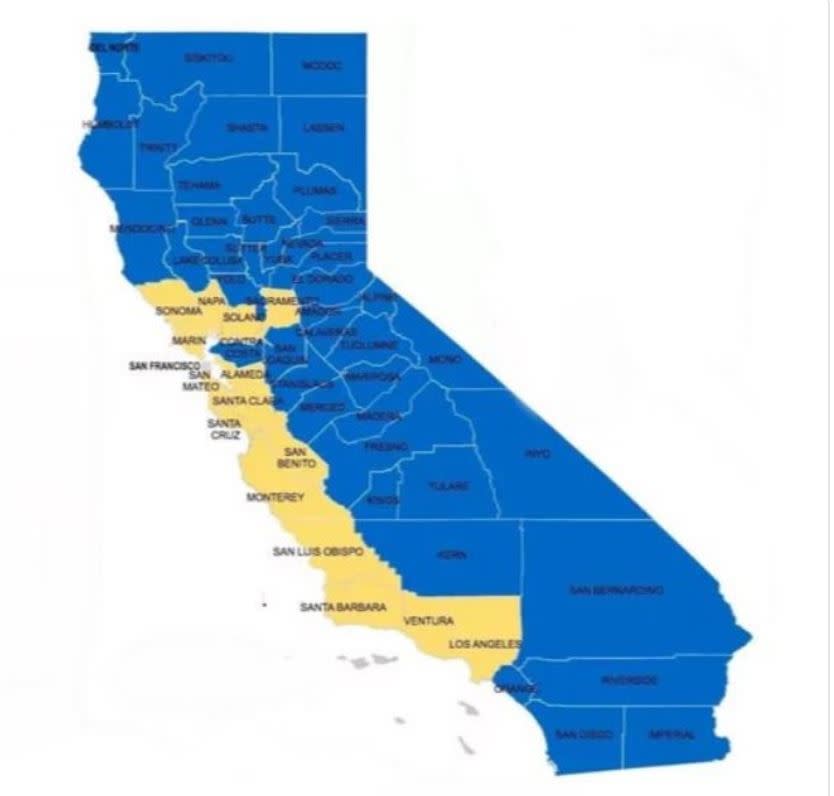6 things that could happen if New California becomes the 51st state
California is known for its beaches and beautiful weather. But not everyone loves the Golden State. On January 15th, a campaign began to create a state called New California split California into two separate states. Here are six things that could happen if New California becomes a state.
1. Two new Republican Senate seats could be added.
“New California” would encompass the state’s rural counties that feel lost among the left coast’s liberalism. With the addition of a new state, two new Senate seats would have to be added. And given the demographics of the new state, it’s likely these senators would be Republicans.
2. Old California would lose some of its House seats.
Since seats in the House of Representatives are allocated based on population, dividing California in two would cause would cause old California to have less sway in the House. Advocates for New California say that it would have 25-27 seats in the House. California currently has 53 seats in the House.
3. New California would be the sixth largest state.
According to the New California movement’s website, the proposed area would have a population of about 15 million, making it the sixth largest state after New York. Old California would be the second largest state with a population of 25 million.
What do you think of this map proposal for "New California" (areas in blue). Supporters want to break off from the coastal parts of #California to become the 51st state. pic.twitter.com/cAPhI3cxQC
— Danielle Radin (@danielleradin) January 17, 2018
4. The new state would probably have lower taxes.
The movement’s founder, Robert Paul Preston told CBS Sacramento that he wants to create New California partially because of the way California is taxed. Because of this, it’s safe to assume that the areas included in New California would be taxed at lower rates.
5. But it would lose a lot of income.
Coastal areas, including Silicon Valley and Los Angeles, remain in old California under Preston’s proposal, meaning the new state would lose a lot of revenue from income tax. L.A. County alone generated almost a quarter of California’s tax revenue in 2013, and Silicon Valley (San Mateo and Santa Clara counties) generated 17 percent of state income tax revenue.
6. New California counties might lose recreational marijuana.
California just legalized recreational pot on January 1st. It’s unclear what New California would do about recreational marijuana, but it’s entirely possible that the slightly more conservative state would reverse California’s legalization.
Parts of California have made unsuccessful efforts to secede before, so we’re not holding our breath for this new state.


